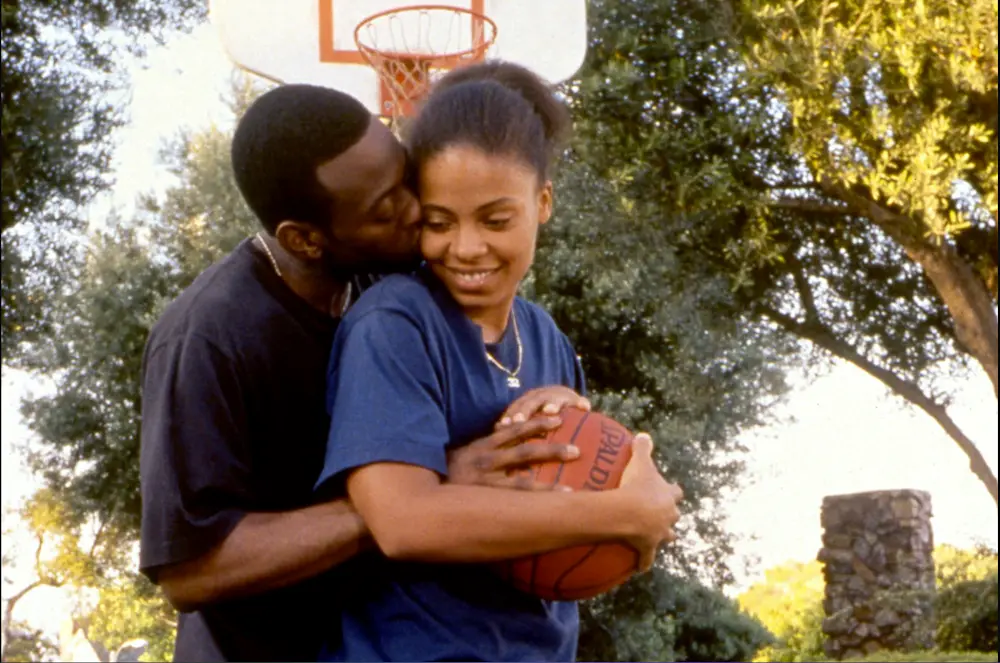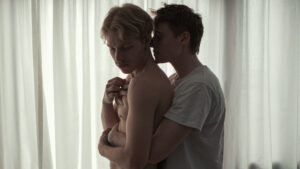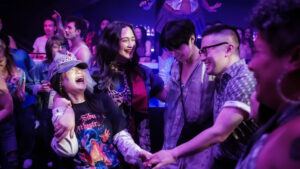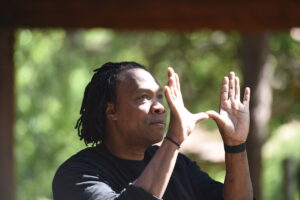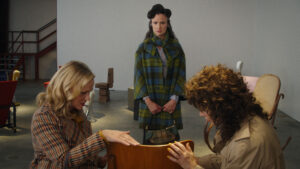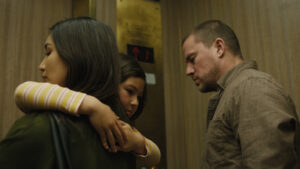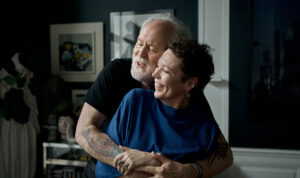By Jessica Herndon
When it comes to romance, I’m as hopeless as they come. I’ve always craved unconditional adoration despite my mess. Someone who locks eyes with me and picks me out of a crowd because they know I’m the one. I’ve always wanted someone to lose sleep over me. And not just the “Oh, I’m thinking of them before I go to sleep” level of thoughts. But the “I can’t sleep because I desperately want to feel their touch” awake. I also love a grand gesture — the one that comes with a soundtrack. In a nutshell, I’ve seen too many romantic movies and read too much Shakespeare.
Yep, I’ve wanted an absurd level of devotion since I was a little girl. There was something about this version of a knight in shining armor — a man who could take you out to have an impeccable meal and also defend you in an alley — that was especially dreamy.
Cut to when I began to date for real, and my ideas of connecting with someone who would be my everything got muddy. I grew up in a predominantly white area and being the only Black girl in most of my classes meant that the babe of choice, basically until I went to college, was the blonde-haired, blue-eyed girl. Couple that with my daddy issues that came after my parents split, and any interest I got from fellas — bad boys or otherwise — seemed like a win.
This inevitably led to putting up with a lot of BS in my dating life. But as I’ve gotten older, my passion for romantic love, and stories where love conquers all, has never diminished — it’s only become stronger. Though, by definition, fiction is an imaginary tale, most of us know there are moments of truth woven within every narrative. Storytellers draw from their own experiences to make us feel that what we’re absorbing is real, and nothing feels more real to me than two people desperately in love with each other. I never tire of learning about what draws people together, the struggles that deepen their bond, and what it takes to thrive in love.
For so long, I thought love wasn’t for me, personally. I thought I’d have to live vicariously through the loving connection of characters to get my fill of romance. It wasn’t until my early 30s that I started to shift my view on what I felt I deserved and what I knew I needed. I discovered that true love wasn’t about the knight savior, it was actually about what I wasn’t going to settle for and what I was bringing to the table. I had to put my vow of honesty and loyalty to the test and quit expecting the world when I wasn’t willing to give it. Once this aha moment occurred, I began looking at my favorite romantic movies in a different light. There were some profound lessons to be learned from these flicks from the Sundance Film Festival archives. Below are eight films and the lessons they taught me.
Spoiler Alert! There are plot reveals ahead.
Love & Basketball (2000 Sundance Film Festival)
I saw Love & Basketball — shout out to the film’s writer-director, Gina Prince-Bythewood, who turned 56 this week! — for the first time in my college dorm. My roommates and I piled in our common area, boo-hooing over the happy ending. But the sweet “love everlasting” message wasn’t what I’d come to cling to the most with this one. It was the moment Monica Wright (Sanaa Lathan) ditched her beloved Quincy McCall (Omar Epps) because she was trying to make her mark on their college basketball team and had to make curfew or she wouldn’t play. Sure, it became a huge bump in their love story because Quincy felt abandoned, but Monica was doing what was best for her. Sometimes, you just have to put yourself first. Monica’s dedication set the tone for her career, which culminated in her playing for the WNBA — and, oh yeah, she and Quincy ended up together in the end.
Buffalo 66 (1998 Sundance Film Festival)
There is no doubt that the love story in Vincent Gallo’s Buffalo 66 is twisted due to the kidnapping angle. The “meet cute” in this one isn’t exactly the cutest. Still, the chemistry between Gallo’s neurotic Billy and Christina Ricci’s sweet Layla proves to be hilarious and tender — at least as far as Layla is concerned. Despite being thrown together under pretenses, Billy and Layla form an unlikely relationship and a deep connection. Billy is a man grappling with shame, loneliness, denial, and emotional baggage, but Layla sees through his defenses. She falls for him despite his brokenness and accepts him without judgment, offering him a kind of unconditional love that he’s never had. Yes, the story showed me to keep a lookout. But it also emphasized that love doesn’t have to be about perfection or erasing the past; it can be about loving someone through their pain and accepting each other fully, even with all our flaws and mistakes.
Reality Bites (1994 Sundance Film Festival)
Ethan Hawke had my heart racing in Ben Stiller’s Reality Bites. The romance between Hawke’s dry Troy Dyer and Winona Ryder’s passionate Lelaina Pierce was raw and romantic and was rooted in the bond with someone who pushes you to stay true to yourself. Troy knows Lelaina well and doesn’t want her to fall victim to societal pressures, which could compromise her passion for life and her vision for filmmaking. At first, Lelaina resists Troy’s affection. But she comes to realize that he feels like home — and that he only wants what’s best for her. Their relationship isn’t without its struggles, but their deep understanding of one another and the way they challenge each other to grow underscores the idea that true love doesn’t just support who you are — it pushes us toward who we’re meant to be.
Before Sunrise (1995 Sundance Film Festival); Before Midnight (2013 Sundance Film Festival)
Sometimes dialogue-heavy films, like Richard Linklater’s brilliant Before series — Before Sunrise, Before Sunset, and Before Midnight — hit you so hard because they feel so grounded in reality. One of the things that is so incredibly impactful about these films is the use of the passage of time. Each film spans about a day, and there are years between the releases of every film. When each film picks up, it mirrors the time that has passed in the story. The grand gestures in the movies, particularly between Before Sunrise and Before Sunset, are exceptionally romantic because of these time gaps. Before Sunrise ends with lovers Jesse (Ethan Hawke) and Celine (Julie Delpy), who live in different countries and who only met the day before, parting ways with a plan to meet up in Vienna six months later. Nine years later, Before Sunset drops, and we meet up with Jesse and Celine again and it is revealed that Jesse made the trip back to Vienna, but Celine didn’t. Throughout this series, there are more grand gestures — Jesse writing a book about their affair, Celine writing a song inspired by Jesse, etc. — in which they declare their love for each other. Yes, it’s a fake romance. However, it’s devoid of the stereotypical tropes in romantic films, such as the common “race against time,” instead rooting it in scenarios that feel real and achievable.
Love Jones (1997 Sundance Film Festival)
In Theodore Witcher’s Love Jones, the relationship between Nina (Nia Long) and Darius (Larenz Tate) is a beautiful testament to love’s ability to endure despite challenges. It also became a classic, feel-good Black love story that authentically depicted Black life in Chicago where no one got shot or arrested, which is commonplace in many Black stories that make it to the screen. Nina and Darius’s journey isn’t smooth. Instead, it’s filled with misunderstandings, insecurities, and moments of doubt, but it’s in those rough patches that their connection deepens. Rather than letting their occasional heartbreak drive them apart, they navigate the complexities of their love unapologetically. Both are unsure at times, but their moments of tenderness and fierce desire make them realize that love isn’t just about the highs but also about finding the strength to come back to each other after the lows. Their determination to keep choosing one another taught me how to understand when something is real and worth fighting for.
Chasing Amy (1997 Sundance Film Festival)
In addition to clinging to all of the self-love vibes in Kevin Smith’s Chasing Amy, the film taught me a serious lesson about boundaries. While the friends-to-lovers love story between Amy (Joey Lauren Adams) and Holden (Ben Affleck) made this film a cult classic, it was epic when Amy slaps Holden after he suggests she have a threesome with his best friend to level the playing field because she’s more sexually experienced than him. Despite her deep love for Holden, she’d done a lot of inner work to grow beyond the escapades of her past and discover what made her feel fulfilled. Amy was very clear about what she wasn’t willing to do so Holden could feel better about his insecurities. She was a strong character to admire, and I’ve carried with me the idea that no matter how deeply you love someone, you should never compromise who you are for them.
Relax…It’s Just Sex (1998 Sundance Film Festival)
J. Castellaneta’s Relax…It’s Just Sex centers on friendship, sex, and love between a group with various sexual orientations. All of the character’s bonds are special and unique, but the relationship between Robin (Lori Petty) and Sarina (Cynda Williams), who transitioned from besties to lovers after Cynda splits from her long-term girlfriend brought tears to my eyes. Robin had been the best friend for years, though she’s always wanted to be more. When Cynda is left heartbroken, she remains in the friend zone until Cynda makes a move. Still, Robin is patient, giving Cynda time and space to move on — eventually with her. But when Cynda’s ex tries to get her back, Cynda turns her down, giving her a speech about Robin’s unwavering devotion that melted my heart and showed me that persistence coupled with self-restraint can be beautiful.





